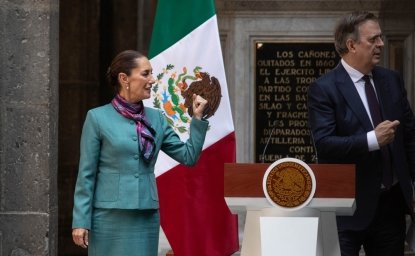Germany's government, led by Chancellor Olaf Scholz, has collapsed following the dismissal of Finance Minister Christian Lindner over economic policy disputes. Scholz now plans to lead with a minority government of his Social Democrats and the Greens, maintaining leadership until a confidence vote on January 15. If Scholz loses that vote, an early election could happen as soon as March 2025. Robin Quinville, Director of the Wilson Center's Global Europe Program, provides insight on the current political uncertainty in Germany. She discusses how the impact the collapse will have on Chancellor Scholz, what is likely to happen when the confidence vote is taken in January, and how political turmoil will affect Germany’s role in the EU.
Transcript
-
Collapse of German Coalition Sparks Leadership Struggle and Calls for Early Vote
Guest


Global Europe Program
The Global Europe Program is focused on Europe’s capabilities, and how it engages on critical global issues. We investigate European approaches to critical global issues. We examine Europe’s relations with Russia and Eurasia, China and the Indo-Pacific, the Middle East and Africa. Our initiatives include “Ukraine in Europe”—an examination of what it will take to make Ukraine’s European future a reality. But we also examine the role of NATO, the European Union and the OSCE, Europe’s energy security, transatlantic trade disputes, and challenges to democracy. The Global Europe Program’s staff, scholars-in-residence, and Global Fellows participate in seminars, policy study groups, and international conferences to provide analytical recommendations to policy makers and the media. Read more

Explore More
Browse Insights & Analysis
Putin’s 2025 New Year’s Address—And an Anniversary Forgotten

Political Turmoil in South Korea: President Yoon Taken Into Custody








